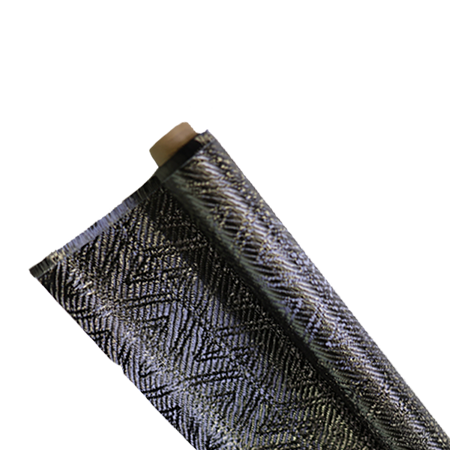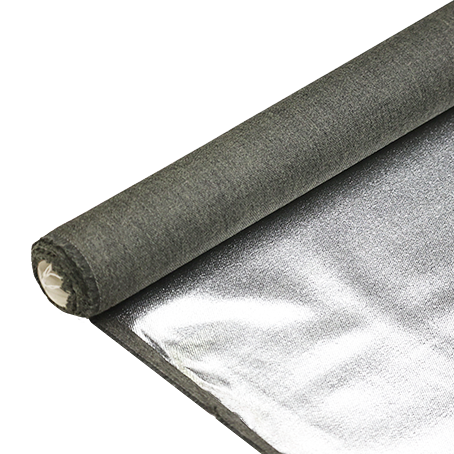Find Your Ideal New Material Supplier Today
-
 Your Composites Expert Carbon Fiber Materials&Products
Your Composites Expert Carbon Fiber Materials&Products -
-1.png?width=686&height=617) Your Composites Expert Aramid Fiber Materials&Products
Your Composites Expert Aramid Fiber Materials&Products -
 Your Composites Expert UHMWPE Materials&Products
Your Composites Expert UHMWPE Materials&Products -
 Your Composites Expert Fiberglass Materials&Products
Your Composites Expert Fiberglass Materials&Products -
 Your Composites ExpertPBO Materials&Products
Your Composites ExpertPBO Materials&Products -
 Your Composites Expert Basalt Materials&Products
Your Composites Expert Basalt Materials&Products
In today's fast-paced business world, finding the right materials is key. It ensures your products are top-notch, keeps costs down, and keeps you ahead of the competition. Whether you make products, build buildings, or sell goods, the right supplier is crucial for your success.
Working with a dependable and affordable material supplier opens up many benefits. You'll see better product quality and a smoother supply chain. The right supplier can help your business reach its highest potential.

Key Takeaways
- Identify the right material suppliers to enhance product quality and business success
- Optimize costs through strategic sourcing and supplier negotiations
- Leverage industry networks and digital platforms to find qualified suppliers
- Implement effective vetting processes to ensure supplier reliability and quality
- Build strong relationships with material suppliers to drive long-term value
Understanding the Importance of Reliable Material Sourcing
Finding the right material suppliers is key to your product's success. A solid material sourcing plan boosts your business in many ways. It affects product quality and helps manage costs.
Impact on Product Quality and Business Success
The materials you choose greatly influence your product's quality and lifespan. Working with suppliers who offer top-notch materials ensures quality control. This keeps your brand strong and loyal customers coming back.
Cost Management Through Strategic Sourcing
Good supply chain efficiency and strategic sourcing help cut costs. By picking suppliers with the best prices, reliable service, and extra benefits, you save money. This boosts your profits.
- Find suppliers with quality materials and good prices
- Get better deals and terms to save more
- Make your supply chain more efficient to cut costs
"Reliable material sourcing is the foundation of product quality and business success. It's a strategic investment that can pay dividends in the long run."
Knowing how reliable material sourcing affects your product quality and cost management helps you make smart choices. This drives your business forward and keeps you competitive.
Essential Criteria for Evaluating New Material Suppliers
Finding the right material supplier is key for keeping product quality high, saving costs, and ensuring your business thrives. When looking at new suppliers, there are important things to think about:
- Quality Standards - Check if the supplier follows quality certifications and sticks to product quality. Look for those who have a good track record of meeting your quality needs.
- Delivery Performance - See if the supplier can meet your deadlines and deliver on time. Reliable delivery is crucial for keeping your production schedule on track.
- Financial Stability - Look at the supplier's financial health to make sure they can support your business. A stable financial situation means less risk of supply chain problems.
- Technological Capabilities - Consider the supplier's tech skills, like advanced manufacturing and quality control systems. These can make your supply chain more efficient and reliable.
By carefully checking new suppliers against these criteria, you can find the best partners. They should meet your quality standards, delivery performance, financial stability, and technological capabilities. This thorough evaluation helps you make smart choices and secure a steady supply for your business.https://www.youtube.com/embed/-rDC7YWdKQY
"Choosing the right material supplier is not just a matter of cost; it's a strategic decision that can make or break your product quality and business success." - Industry Expert
Best Practices for Finding and Vetting New Material Suppliers
Finding and checking new material suppliers is key for your business's success. Use online tools, industry networks, and detailed checks to find the right materials. This helps your products grow and succeed.
Digital Platforms and Industry Networks
Online marketplaces and industry directories are great for finding suppliers. They offer supplier profiles, reviews, and comparison tools. Also, networking at trade shows and conferences can lead to trusted suppliers.
Background Checks and Reference Verification
Doing deep background checks and checking references is vital. Look at a supplier's finances, history, and quality control. Talking to their past and current clients gives you real insights.
Quality Certification Requirements
Make sure your suppliers meet certification verification standards. Look for quality, environmental, or safety certifications. These show they're committed to excellence and follow industry rules.
| Best Practices for Supplier Vetting | Key Benefits |
|---|---|
| Leveraging digital platforms and industry networks | Expanded supplier pool, access to reviews and comparisons |
| Conducting thorough background checks and reference verification | Mitigates risks, identifies reliable and high-performing suppliers |
| Requiring quality certifications and compliance standards | Ensures product quality, safety, and regulatory adherence |
Follow these best practices to build a strong and reliable supply chain. This will help your business grow and succeed.
Building Strong Relationships with Material Suppliers
Building strong ties with material suppliers is key for businesses. It ensures a steady flow of important materials. This approach brings many benefits, like better product quality and cost savings.
Good supplier relationships start with clear communication strategies. Regular talks between buyers and suppliers help align goals. They also share insights and find common benefits. This teamwork builds trust and leads to long-term partnerships.
Working together on product development also strengthens these bonds. By involving suppliers in design and innovation, companies tap into their expertise. This improves product quality, speeds up getting products to market, and encourages ongoing improvement.
| Key Benefits of Strong Supplier Relationships | Strategies for Building Supplier Partnerships |
|---|---|
| Improved product quality and consistencyReduced supply chain risks and disruptionsEnhanced cost management through volume discounts and optimized sourcingAccelerated innovation and time-to-market | Establish clear, open communication channels with suppliersCollaborate on product development and process improvementsOffer incentives and rewards for supplier performance and loyaltyProvide timely feedback and recognition for exceptional serviceInvest in long-term partnerships that foster mutual growth |
By focusing on supplier relationships, companies can build a strong supply chain. This sets them up for long-term success in a changing business world.

"Fostering strong, collaborative relationships with our material suppliers has been a game-changer for our business. It has enabled us to improve product quality, optimize costs, and drive continuous innovation." - John Smith, Supply Chain Manager
Negotiating Terms and Pricing Strategies
Finding the right supplier is just the start. Businesses need to negotiate good contract terms and pricing to stay profitable. Learning to negotiate and optimize prices helps companies get better deals and build strong supplier relationships.
Contract Development Essentials
The contract is the base of any material supply deal. Good contract terms are key to a successful partnership. Important things to negotiate include:
- Clear contract negotiation roles and duties
- Good pricing strategies and discounts for big orders
- Flexible payment terms and conditions
- Adjustable delivery times and lead times
- Quality checks and ways to solve disputes
Price Optimization Techniques
Getting the best pricing strategies is vital for keeping costs down. Good price optimization methods are:
- Using volume discounts for large orders
- Getting long-term deals with set pricing strategies
- Trying different payment plans, like tiered pricing
- Checking prices often against what others charge
Payment Terms and Conditions
Good payment terms and conditions help with cash flow. Key negotiation points are:
- Getting better payment terms, like longer payment times
- Looking into partial payments or progress billing
- Setting clear rules for invoices, late payments, and disputes
- Discussing penalties or rewards for on-time payments
By getting good at contract negotiation, pricing, and payment terms, businesses can make their material sourcing better. This leads to more profit, better cash flow, and a stronger supply chain.
Risk Management in Material Supply Chain
Effective risk management is key in today's complex material supply chains. Businesses need to find and fix potential problems to keep resources flowing smoothly.
Supplier diversification is a smart strategy. It means working with many suppliers, not just one. This way, companies can handle disruptions better and stay flexible in changing markets.
Contingency planning is also vital. Companies should have plans ready for different scenarios, like natural disasters or supplier issues. This lets them quickly respond and lessen the damage to their operations.
Using risk assessment tools and data analytics helps spot supply chain risks early. By watching market trends and supplier performance, companies can fix problems before they start. This helps them make smart choices about where to get their materials.
| Risk Mitigation Strategies | Key Benefits |
|---|---|
| Supplier Diversification | Reduced reliance on a single source, enhanced supply chain resilience |
| Contingency Planning | Ability to swiftly respond to disruptions and minimize operational impact |
| Risk Assessment and Data Analytics | Proactive identification and prioritization of supply chain vulnerabilities |
By focusing on risk mitigation, companies can handle the ups and downs of material supply chains. This ensures their business keeps running smoothly.

"Anticipating and addressing supply chain risks is no longer a luxury, but a necessity for businesses seeking to thrive in today's volatile market."
Technology Tools for Supplier Management
In today's fast-paced business world, companies are turning to new tech to manage suppliers better. They use supply chain software, digital communication tools, and inventory tracking systems. These tools help make processes more efficient, transparent, and collaborative.
Supply Chain Management Software
Supply chain management software offers many features to help manage suppliers better. It gives real-time updates on inventory, orders, and delivery times. This helps companies make smart choices and improve how they get materials.
Digital Communication Platforms
Good communication is key to strong supplier ties. Digital communication tools like supplier portals and cloud platforms make sharing info easy. They help solve problems and improve how businesses and suppliers work together.
Inventory Tracking Systems
Keeping the right amount of stock is important to avoid running out or having too much. Inventory management systems with smart analytics help predict demand. They track how materials are used and guide decisions on when to order more.
Using these advanced tools, companies can build stronger supplier relationships. They can also make their supply chains more resilient and improve how they get materials.
| Technology Tool | Key Benefits |
|---|---|
| Supply Chain Management Software | Improved visibility, better decision-making, optimized procurement strategies |
| Digital Communication Platforms | Enhanced transparency, responsive collaboration, streamlined information sharing |
| Inventory Tracking Systems | Accurate forecasting, efficient inventory management, cost reduction |
Sustainability and Ethical Sourcing Considerations
Businesses today face a big challenge: staying ahead while being green and fair. People want to know the impact of what they buy. Companies that focus on sustainable and ethical sourcing are winning big.
Following environmental laws and treating workers right are key. Working with suppliers who care about the planet helps a company's image. It makes them stand out and succeed.
Being ethical means treating workers well and following labor laws. This builds trust and loyalty with customers. By focusing on these values, companies can avoid risks and be seen as good citizens. They appeal to those who care about the planet and people.
FAQ
What are the key factors to consider when evaluating potential material suppliers?
When looking at new material suppliers, focus on quality certifications and production capacity. Also, check their delivery reliability, financial stability, and tech capabilities. These factors ensure you get quality materials on time and within budget.
How can I effectively identify and vet new material suppliers?
To find and check new suppliers, use digital platforms and industry networks. Do thorough background checks and verify references. Confirm quality certifications too. These steps help find reliable suppliers that meet your needs.
What are the benefits of building strong relationships with material suppliers?
Strong relationships with suppliers bring many benefits. You get better communication, joint product development, and growth chances. Investing in these partnerships ensures a steady supply of quality materials and gives you a competitive edge.
How can I negotiate favorable terms and pricing with material suppliers?
To negotiate well, start with detailed contracts and use pricing optimization. Agree on fair payment terms and conditions. A collaborative approach helps get the best deals while keeping good supplier relationships.
What are the key risks to consider in my material supply chain, and how can I mitigate them?
Key risks include supply disruptions, quality issues, and unstable suppliers. To reduce these, diversify suppliers, plan for contingencies, and monitor their performance and finances closely.
How can technology tools help streamline my supplier management processes?
Technology like supply chain software, digital platforms, and inventory systems can help. They make processes more efficient, transparent, and collaborative in material sourcing and procurement.
What sustainability and ethical considerations should I keep in mind when sourcing materials?
Consider the environmental impact, fair labor, and social responsibility of suppliers. This ensures your brand values and meets customer expectations for ethical sourcing.












